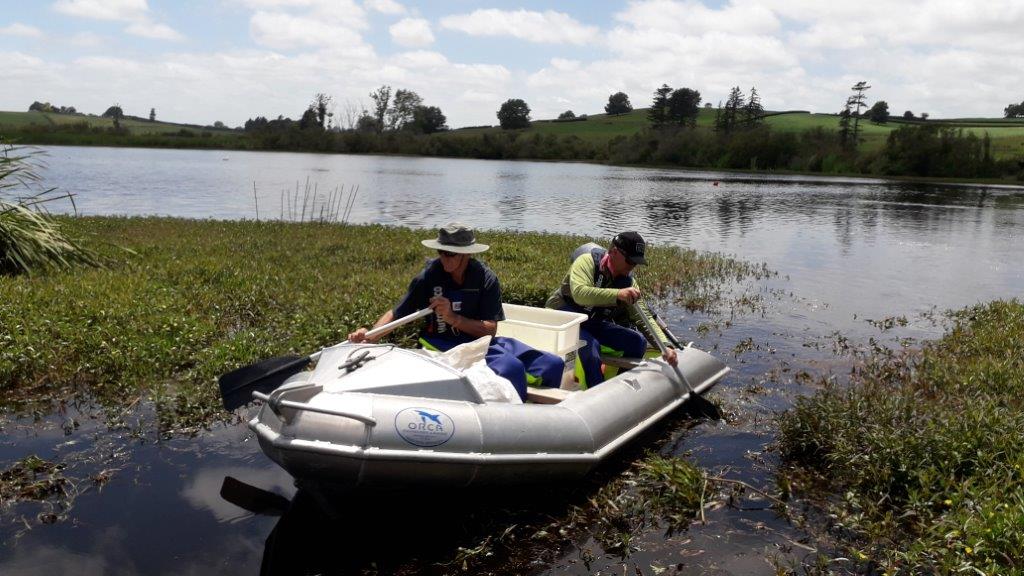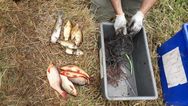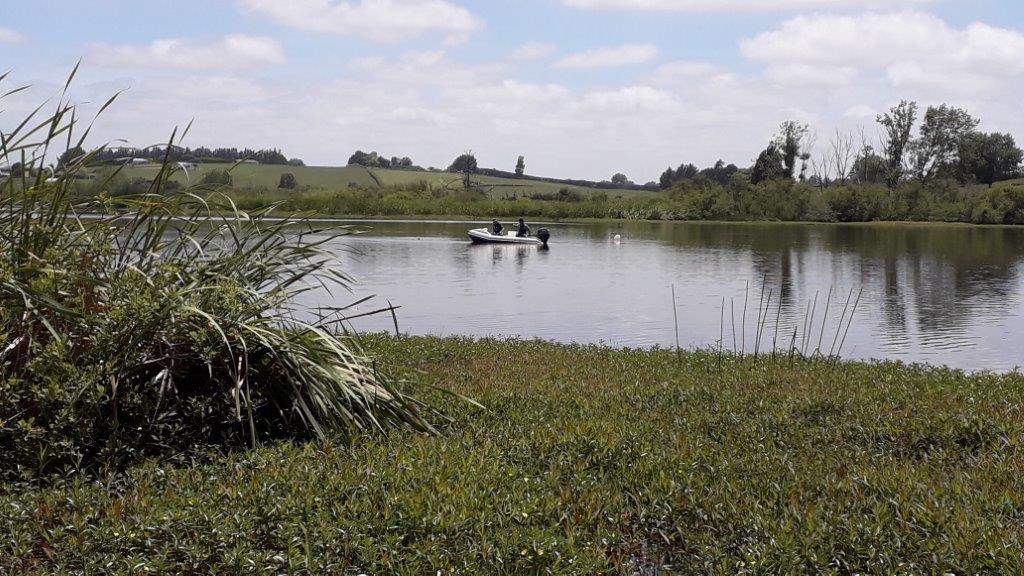
Macrophyte Reintroduction Trial
About the project
Aquatic macrophytes are plants that grow in or near water. Macrophytes are important in lake systems because they take up nutrients, bind sediments, provide habitat and food for aquatic biodiversity, buffer the effects of wave action and contribute to oxygen cycling in the water column.
Many shallow lakes in New Zealand have shifted from a clear water state dominated by native macrophytes to a turbid water state dominated by algae. While site specific, this can be due to changes in land use resulting in increased nutrients entering the lake; plant pest or animal introductions; and water takes reducing lake level.
This project aims to translocate macrophytes to enable their re-establishment in Lake Ruatuna with the long-term aim of returning the lake to a clear water state.

Benefits
- Reintroduction of native aquatic macrophytes to Lake Ruatuna
- Physical removal of pest fish species to enable macrophytes to successfully re-establish
- Reduce suspended nutrients and sediment, improved oxygen state
- Improved habitat for native biodiversity
Progress
- Data including information on water temperature, dissolved oxygen, chlorophyll concentrations, turbidity and light penetration were collected at the surface and bed of Lake Ruatuna from September 2018 – April 2019
- This showed that light conditions are not suitable for macrophyte reintroduction at Lake Ruatuna because of the heavily peat stained water, which prevents almost all light penetration to the lake bed and would prevent the plants from successfully establishing
- Given these findings, the macrophyte reintroduction project at Lake Ruatuna is not being pursued further, however other activities will continue including edge of lake interventions and mammalian and aquatic pest control
